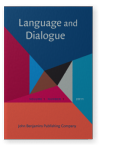Vol. 1:1 (2011) ► pp.44–78
Why is dialogical solving of a logical problem more effective than individual solving?
A formal and experimental study of an abstract version of Wason’s task
We study the accomplishment of the abstract version of Wason’s selection task in a cooperative dialogue context that has been neglected in the research devoted to this task. 123 psychology students, 75 in their third year and 48 in their first year of studies participated in the experiment. 59 students performed the task individually (control group) and 32 in dyads (experimental group) while we recorded their dialogues. In accordance with the literature, the dyads outperform significantly the students working alone. To discover the strategies implemented in the four dyads which succeeded, we analyzed their respective dialogues with a theory (‘Interlocutory Logic’) of the logical form of conversational events as they are manifested phenomenally in natural language. We show that these strategies are situated and emergent products of the dialogue, since no member of the dyads knew them before the interaction. So, it is surely by supporting the emergence of such joint cognition that the interaction is a factor of cognitive progress. We conclude this research by some remarks on the Wason’s task and moreover on the methodological solipsism in the psychology of reasoning.
Cited by
Cited by 6 other publications
This list is based on CrossRef data as of 4 june 2024. Please note that it may not be complete. Sources presented here have been supplied by the respective publishers. Any errors therein should be reported to them.
